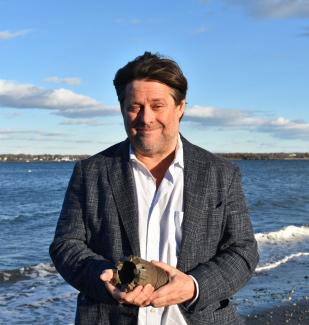Event
EES Seminar Series - Dr. Steven D'Hondt
"Life Beneath the Seafloor"

The Department of Earth & Environmental Science
University of Pennsylvania
Invites you to attend a EES Seminar Series
Friday, April 7th - 3:00 PM
"Life Beneath the Seafloor"
Subseafloor microbes are abundant and diverse. They persist in sediment for at least 100 million years. They persist in 100-million-year-old igneous crust beneath the sediment. They breathe up to 1,000,000 times slower than microbes in the surface world. They control Earth’s surface oxidation and major aspects of ocean chemistry. They affect climate on long timescales and they play major roles in forming and destroying economic resources. In marine sediment and rock older than a few million years, they may be primarily sustained by radioactive splitting of water. Fundamental aspects of subseafloor microbes, including their evolution and the cellular features that enable their persistence at low metabolic rates for millions of years, remain unknown.
Dr. Steven D'Hondt
Professor of Oceanography
Marine Geology and Geophysics
Steven D'Hondt is a professor of oceanography at the University of Rhode Island. His research and teaching centers on understanding the interplay between the biosphere and the physical world. In recent years, his primary research focus has been subseafloor life – the only global biome that remains largely untouched by human activity. His previous research topics include global consequences of large body impacts, ocean-climate interactions in greenhouse and icehouse intervals, and plankton ecology and evolution. Steve proposed and co-led the first two ocean drilling expeditions focused primarily on subseafloor life, as well as multiple long-coring expeditions. He is a Fellow of the Canadian Institute for Advanced Research and the American Association for the Advancement of Science.
